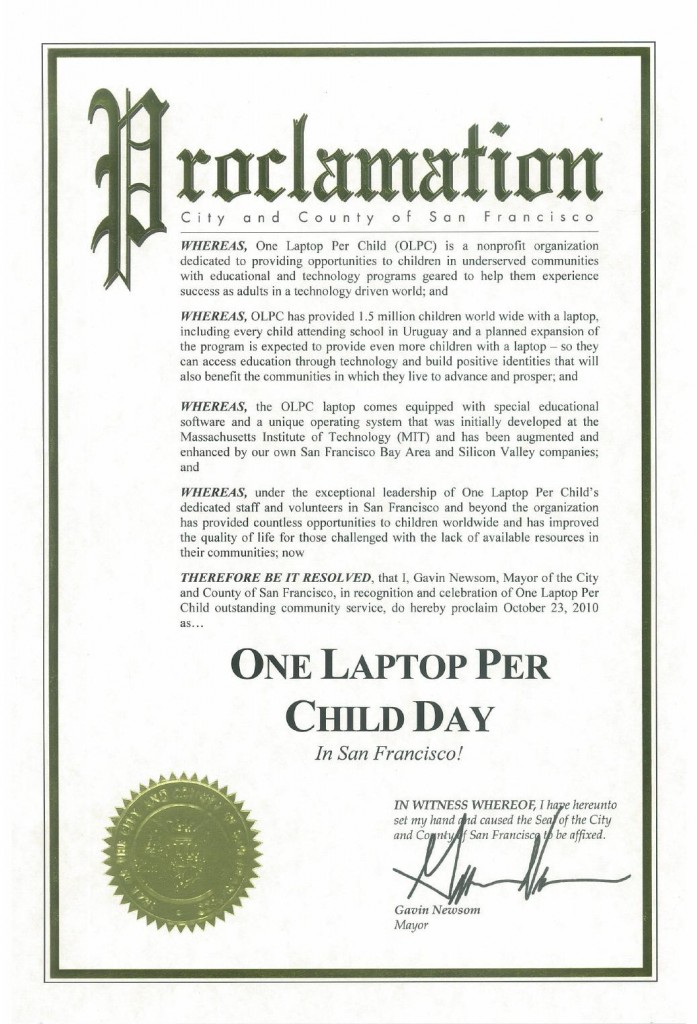Mayor Gavin Newsom has declared tomorrow, October 23, “One Laptop per Child Day” in San Francisco, in recognition of OLPC’s service to communities around the world — and in honor of the upcoming community summit. Special thanks are due to Carol Ruth Silver and Sameer Verma for their work with the city to make this, and the weekend’s events, possible.
San Francisco has been a nexus of creative energy and support for the olpc movement since the early days of the project, when fuseproject took on our industrial design. It’s fitting that the city is hosting the international summit this weekend, and an honor to have the mayor name a day after the project — or really, if you read the text of the proclamation (and I woinder: who writes these things?), naming one after our global network. Thank you to everyone who is helping to carry the message of universal education and connectivity forward, around the world.
If you are coming to the summit this weekend, please remember to register online — we have about a dozen spaces left.
And don’t forget: we are opening with a reception tonight at 5pm. I look forward to seeing everyone soon!

